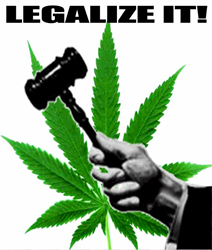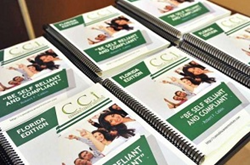
(PRWEB) February 13, 2015
Executive Chairman of Cool Group, Joe Issa, says medical marijuana could be Jamaica’s economic legacy, according to an article in the North Coast Times newspaper published on January 9, 2015 at http://www.northcoasttimesja.com/?p=2331.
Issa made the comments as the authorities now look to taking the next step in 2015, of legalizing marijuana for the purpose of making medical and other products that can be monetized. Issa’s heightened expectation is also shared by others, as is expressed in The Gleaner newspaper’s Letter of the Day titled, Is It Ganja To Our Rescue?
Published on January 15, 2015 at http://jamaica-gleaner.com/gleaner /2015 0115/letters/ letters 1.html, the author says Jamaicans are captivated by a high, not that which comes from smoking marijuana, but “by another high which comes from their eager expectation for the legalisation of marijuana and the economic transformation they envision from its large-scale production for export and the development and manufacture of products, especially for medicinal purposes.”
Ganja reform has remained an elusive dream for many years until 2014, when the promise was made by business savvy Justice Minister, Mark Golding who, along with two long-time friends which include the current National Security Minister, Peter Bunting, founded a hugely successful and award-winning investment banking house, which was reputable, progressive and innovative (see http://en.wikipedia.org/wiki/Peter_Murcott_Bunting).
In the article titled, Jamaica: Government Promises Relaxation Of Ganja Possession Laws by Paul Armentano, NORML Deputy Director June 13, 2014 at http://blog.norml.org/2014/06/13/jamaica-government-promises-relaxation-of-ganja-possession-laws/, Golding said “Parliament was in favour of legislating to expunge the criminal records of persons with minor marijuana convictions” and that “additional legislative efforts are also underway to develop a legal framework which will allow the emergence of medical ganja and industrial hemp industries in Jamaica.”
Last year October, Golding steered the Jamaican Parliament into passing the Criminal Records (Rehabilitation of Offenders) (Amendment) Act 2014 and by year-end had legislation drafted to make the possession of small quantities of ganja a non-arrestable, ticketable infraction, and allow the possession and use of ganja for scientific research, religious and medical purposes, says the government’s news agency, Jamaica Information Service, in its year in review of the Justice Ministry’s ganja reform legislative agenda, at jis.gov.jm.
Talking to the North Coast Times newspaper in an interview about the highly anticipated next step of legalizing medical marijuana by the Jamaican parliament and what that will mean for the country, Issa says “it may be the country’s economic legacy,” calling it “a once-in-a-life-time opportunity” which, when comes along “must be grabbed, nurtured, protected, administered and monetized.”
However, many like Issa think the move has taken too long, coming 40 years after Jamaican reggae icon Peter Tosh sang “Legalize It”. Issa laments that Jamaica is behind the United States in medical marijuana, an industry that could turn the Jamaican economy around by providing significant income for farmers and others in the value chain, jobs for people and money in government coffers through taxes, which cannot be levied as long as marijuana remains illegal.
Currently, some 14 US states have legalized marijuana, and over-the-counter sales is already a booming industry, leading Issa to posit that Jamaica could be left behind in the race and may even have to import marijuana from the US, unlike which, Jamaica has few natural resources other that bauxite, and depends largely on tourism and agriculture to provide jobs for its people and infrastructure.
Issa’s position is supported, from as early as 2001, by Jamaica’s National Commission on Ganja which, among other recommendations in its report published at http://www.cannabis-med.org/science/Jamaica. htm, says “in order that Jamaica be not left behind, a Cannabis Research Agency be set up, in collaboration with other countries, to coordinate research into all aspects of cannabis, including its epidemiological and psychological effects, and importantly as well its pharmacological and economic potential, such as is being done by many other countries, not least including some of the most vigorous in its suppression.”
In its preface, the Commission report of 2001, which recommends decriminalizing ganja for personal, private use by adults and for use as a sacrament for religious purposes, says “for well over a hundred years, ganja has become the subject of considerable debate and investigation, beginning with the much celebrated India Hemp Commission of 1894, which was followed by no fewer than ten landmark Commissions and studies.”
The 2001 report is said to have come following “exhaustive consultation and inquiry involving some 400 persons from all walks of life, including professional and influential leaders of society”, and the favourable sentiments expressed about marijuana by Jamaicans, were found to be consistent with those of similar studies in the US, which show that 70% of Americans believe marijuana must be legal for medical purposes, while 53% support the drug being given the same recognition as alcohol, and most of them say it should be accessible to adults, according to figures stated by noted advocate, Dr Ethan Nadelmann in a Gleaner newspaper article published on December 19, 2014 at http://jamaica-gleaner.com/gleaner/20141219/lead/lead91.html.
Professor Nadlemann, who is the executive director of the New York-based Drug Policy Alliance (DPA), the leading body promoting drug policies grounded in science, compassion, health and human rights in the US believes, like Issa, that Jamaica is far behind on medical research on ganja and that “if something isn’t done soon, Jamaica could find itself importing ganja from the United States in the next 10 years,” says another article posted on December 15, 2014 at http://jamaica-gleaner.com/latest/article.php?id=57236.
Known for his outspokenness on the issue, Hadlemann says half of the US has now made marijuana legal for medicinal purposes and millions of Americans are now receiving the drug through recommendations from medical doctors. He says there are also thousands of dispensaries, shops and stores selling marijuana legally, with millions of dollars in tax revenues going into US government coffers, as has been expressed by Issa to be the potential outcome for Jamaica when ganja is legalized.
Find More Hemp News Press Releases


